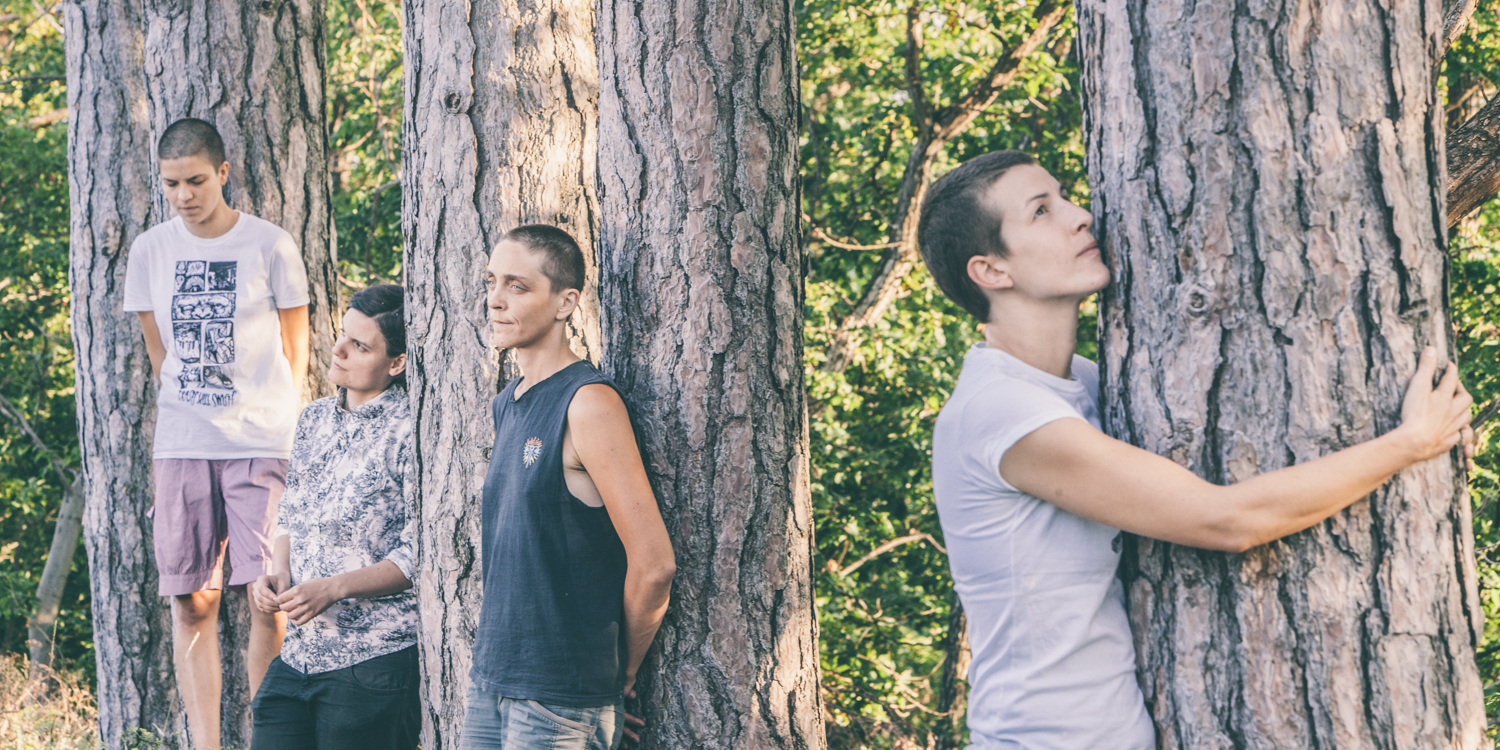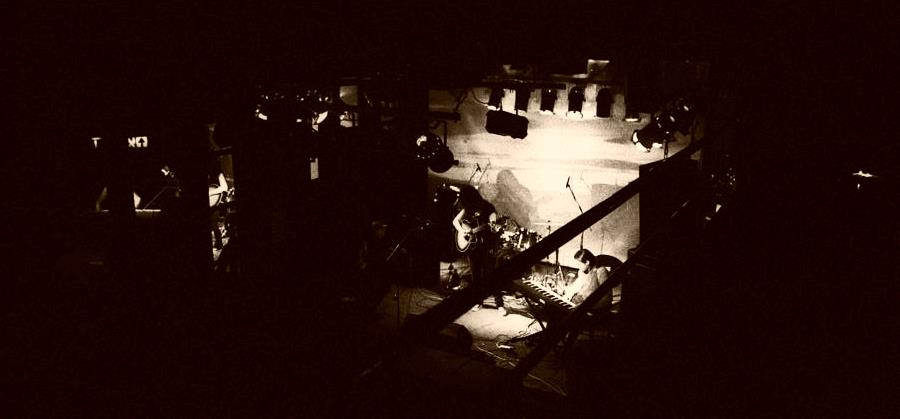
How Croatian female singer-songwriters and musicians are reshaping traditional women’s roles in the music industry.
“A woman with a guitar all alone on the stage”
When Nina Romić organized a singer-songwriter festival in the autumn of 2012, little did she suspect that it would be the second evening of the festival, the one featuring female singer-songwriters that would get the most media attention. “It was interesting to see how extensively the media covered the evening that featured female artists. Men didn’t get the same treatment,” says Romić.
When defining a cultural movement, one is always looking for a milestone event or a date. In the last couple of years, the Croatian scene has been enriched by new performers of both genders, young singer-songwriters and musicians who pursue quality in music, rather than instant celebrity.
Although the singer-songwriter festival at Močvara didn’t make it into musical history books – it’s debatable if it even qualifies as a ground-breaking event per se –, it marked the beginning of increased media interest in the female singer-songwriter scene.
By 2012, Nina Romić was already a seasoned musician and the Croatian musical scene had multiple well-known female performers. But in 2005, when she debuted, there was no such thing as a “female singer-songwriter scene”. Sure, there were bands with female leads, and there were female performers on the mainstream music scene, but there simply weren’t enough female singer-songwriters-with-a-guitar to form a scene.
“I remember my beginnings – during one of my concerts in a small Croatian town, a guy in the audience didn’t stop commenting while I sang and played guitar. It must have been quite unusual for him to see a woman with a guitar all alone on the stage,” recalls Romić.

“They Can Do It Themselves”
Today, it’s quite common to see a female singer-songwriter with a guitar on the stage in Croatia. There are dozens and dozens of such performers touring the country and the region. Their music doesn’t fit into mainstream music industry moulds – a couple of chords, catchy choruses and a heavy emphasis on physical appearance. Many of them function in accordance with DIY principles, being their own managers, drivers, bookers and so on.
“Women’s empowerment has happened in many artistic fields, music included. And the number of female musicians has increased,” states Antonela Marušić. She’s a writer and journalist, currently working on a documentary titled I Can Do It Myself, with Croatian production house Fade In. The tagline for the film claims that Croatian pop and rock music is no longer a world in which men play the main role. For the first time ever, female musicians are involved in large numbers, not only as singers, but also as successful songwriters, drummers, guitarists and hit-makers.
In the process, that hard-to-define-and-delimit label of “female singer-songwriter scene” was born. As it often happens in the arts, where male is the norm, the adjective “female” is somehow supposed to qualify/depict somebody’s art œuvre better – even though these female performers don’t necessarily share the same taste in music. Sara Renar, a 29-years-old musician who ditched her career in an architectural bureau to pursue her lifelong dream of making music, is tired of being labelled as “female” first and “musician” second. Too often, the media put female musicians under the same label, she says. “And all we have in common is that we’re women and we play music. But we play different kinds of music,” Renar emphasises.
However, there might be something else they do have in common. According to Marušić, these new performers challenge the traditional roles women have in music industry – not necessarily and not only in blunt terms, by propelling strong feminist messages in their music, lyrics or stage behaviour.
“It’s true that we can’t compare this growth of the female singer-songwriter/musical scene with trends such as riot grrrls. Riot grrrls had a completely different musical style as well – punk, post-punk, garage, genres in which the message is, by default, expressed with a shout, powerful riffs, directly, clearly… Here it happens through new narratives, new themes, new ways they position themselves on the scene, as well as through the new ways they function within the scene, the ways they discuss and negotiate with the band, write their songs, manage everything, organize tours. They’re taking care of everything, from booking the concerts to communicating with the media – and even in the media they’re representing a sort of activist message,” explained Marušić.
Breaking the mould
Žen is a band that has contributed to revolutionizing the music scene in Croatia – and beyond. They’re an all-female band, they define themselves as queer, and their very lifestyle makes them a non-conformist band. Their lyrics are often devoid of traditional male/female adjective forms, and their very name, žen, is a non-existent word, a made-up male form of the female noun for woman, žena.
Being labelled as an all-female band might have been beneficial in the beginning, but it’s a double-edged sword, says Sara Ercegović, the drummer. “There are fewer female musicians, so an all-female band is more visible and maybe more interesting to bookers, to the media. But as much as it might be helpful at the beginning, it’s also very harmful, degrading, because it makes your music of secondary importance,“ she explains.
As an all-female band, Žen sometimes got invited to concerts and festivals where they didn’t belong in terms of the music they play. Ercegović recalls how they got invited to a motorbike festival and got booed off the stage. “The audience probably hoped to see scantily dressed girls on the stage and were angry when they got an experimental band whose songs last up to seven minutes instead,” remembers Ercegović.

“Nobody cares what men look like onstage. Nobody even thinks to comment how attractive they are, or why they didn’t wash their hair before the concert. A man can be fat and hairy and nobody will really care about that, or it definitely won’t be the first thing they bring up. Everyone will talk about the music. But me, it took me years to be treated as a drummer and not a woman-drummer. For years, people would approach me after the concert to tell me ‘you play great – for a woman’,” says Ercegović.
Dealing with everyday sexism
It’s a no-brainer that women in the industry get judged more than men, and Croatia is no exception. Sexy looks and attires help sell, and not only in the mainstream pop economy, driven by hits and clicks. Sexism in the alternative music industry may not be as apparent as the misogyny of the pop world, but it’s still there. And though it’s debatable if labelling somebody as a “female musician” is actual sexism or just a clumsy way of making female performers more visible, there are many other blatant examples of gender sexism out there.
The biggest underlying assumption in the business is that women just can’t play or write music as well as their male counterparts, as mentioned by Ercegović. “When a woman makes music, she’s called a singer, while her male counterpart would be called a ‘musician’, a category that encompasses much more than just singing. Of course, I do sing, but I also write my own lyrics, my own music,” adds Sara Renar.
It isn’t just their ability to play music that is questioned. Renar, who tours with a male keyboardist, says that when sound engineers have any technical questions, they address them to her male companion, not to her. Nina Romić recalls how, when performing with two male musicians on a TV show, she had to deal with a male producer who asked the men how they allowed her to be the boss.
Every woman interviewed for this feature could match each other’s stories pound for pound. How club owners, almost always male, call them nicknames they would never dare call a male performer. How, if they’re accompanied by a male friend/sound engineer/driver, club managers always assume the man is their manager – just because he’s a man.
In the Women in Music and Cinema in Europe study, which covers the much broader topic of women in music and cinema, one can read that “the undervaluation of women in the cultural field appears to be counter-intuitive”. “There is an idealized view of how this world doesn’t rely on money and power, and thus cherishes other types of values,” explains the report, arguing that “it is generally considered that artists are more likely to break rules, and thus would be inclined to defy stereotypes, including gender stereotypes”. However, the sad conclusion is that “women are as invisible in the cultural sector as in other fields”.
It’s not just a Croatian issue. Even a quick search on the Internet will yield dozens of articles by female musicians speaking out about the rampant sexism of the music industry – from constant harassment and double standards to objectification, name-calling, patronizing, infantilization. And the stories come from all over the world. Even Björk, coming from Iceland, the best country in the world when it comes to gender equality, spoke out about the prevalent sexism in the music industry after the release of Vulnicura. In an interview for Pitchfork, she said: “Everything that a guy says once, [a woman] has to say five times.”
Female Solidarity
“I’ve never been ‘forced out’ of the music industry. Not directly. I think these kinds of prejudices are deeply rooted in our society. For example, it’s quite rare for a girl to get a toy drum set as a child. And it’s precisely when you’re a child that you get the first impressions of what you can do with your life, what activities you can spend your time on. If you start doing something you’re not supposed to as a child, then you’ll be frowned upon,” says Zvonka Obajdin, a singer-songwriter and a member of the band Svemir.
She started playing music “late”, writing her first song when she was 36, after years of having a regular job that had nothing to do with music. “People would ask me if I was normal. How could I do that, being a single mother with two children at home – and my children weren’t babies at the time, they were 12 or 13. If I were a man, a father, I think I wouldn’t have been asked why I was putting my music ahead of my children,” she explains. Another thing she often got asked was what her children would think of her. “As if I were doing something illegal or bad. I think these questions only had to do with the fact that I was a woman, and with the perception of what is OK for a woman to do,” she says.
However, it’s not all that grim. The women interviewed all mentioned that they haven’t really felt sexism from their male colleagues in the industry. There is solidarity within the underground/alternative music scene in Croatia, and there’s a sense of female solidarity within the scene. “Nina Romić ‘happened’ and made some space for her fellow (female) musicians, encouraging other women to start performing,” says Marušić. If this trend continues, we can only rejoice: we’ll be hearing more and more female voices on the Croatian music scene.
